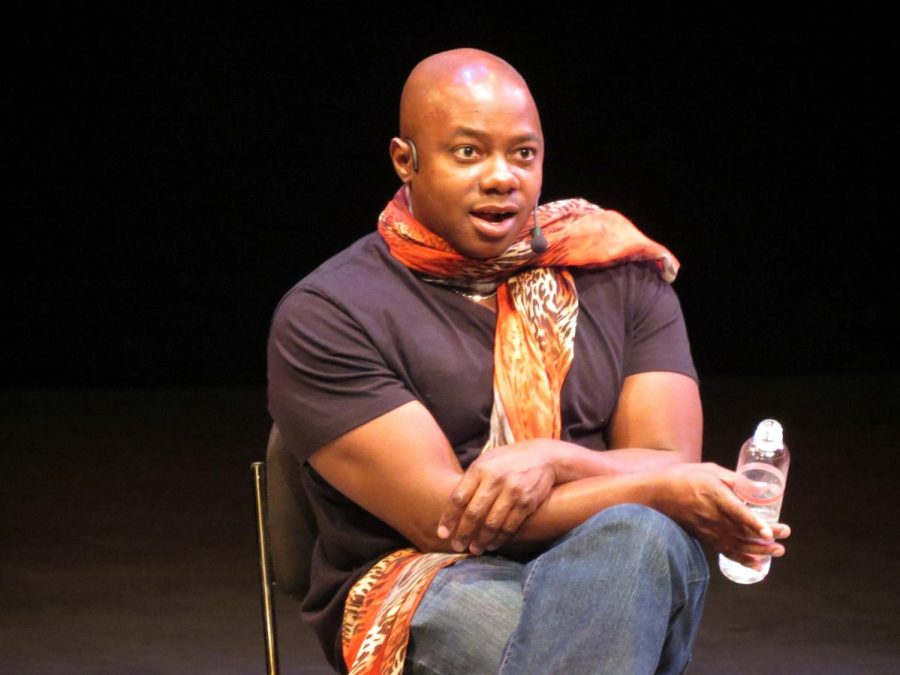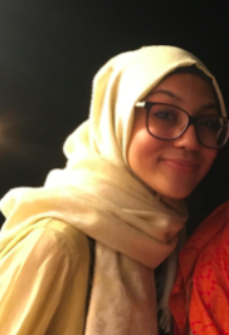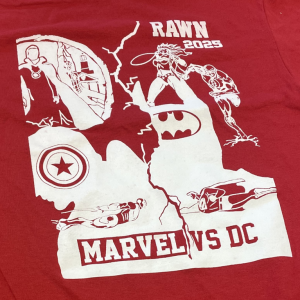Humans of RV: Dr. Mykee Fowlin
How Respect Week’s biggest star came to his unique performance style, and what it means to find commonality today
Photo courtesy of mykeefowlin.com
Dr. Fowlin perfoming “You don’t know me until you know me”
October 10, 2021
The Humans of RV project is a weekly column based on Brandon Stanton’s seminal “Humans of New York” project, which seeks to “catalog the city’s inhabitants” through photography and brief interviews. RV seeks to expand on this project with our own “cataloging” of RV students and an examination into all the unique perspectives here at school.
Note: this transcript has been edited and condensed for publication purposes.
I am an actor, phycologist, poet, storyteller and metaphor-seeker. I take all of what I call my skills and talents and try to combine them into a journey of sorts so that people can look at themselves a little more closely and the things that really matter as opposed to just the exterior of themselves.
I have been coming to speak to RV for more than ten years. I did come in to speak to the sophomores last year, and in fact, it was my only live on stage show that I did last year, [during which the school] had a third of the students in person and the rest were [virtual].
I speak all around the country, and even for a time, I’ll do it in Europe as well. Before the pandemic, I was doing about 300 to 330 presentations a year.
For undergrad I went to Evangel University, where I studied psychology, and I went to Rutgers Clinical Psychology for grad school. I did psychology for undergrad but I was also very involved in theater. I would do these competitions of one man shows or programs, and then I had the thought that when I get to grad school, acting and community theater would be something that I do on the side, and become a psychologist full time.
I had the shot to do the Broadway stuff, but that really was not where my heart was. I always thought of it in this way, that I get people to come up to me now and share what they’re going through and have been through, and I would have never been able to do that if I were in movies or on Broadway. Actually, in grad school I did a program for teenagers in a camp and [the students told] me that I have to speak at their school, and that they never had anyone talk to them in a real way.
I came to this style of presentation because I was just like a weird kid. It’s not like I needed to figure out ways that made sense to me. I knew voices were something I loved to do as a kid and to create voices to make people laugh. Growing up, I also loved speakers who could make me laugh for one moment and bawl my eyes out the next.
My biggest inspiration was my life of feeling alone. I thought there had to be other people who experienced that isolation that I was experiencing, and realized that most of us feel isolated at a time, not understood. So, I started talking about it, and as I started speaking about it I realized that there are even more…people who need to know they are not alone [than I thought]. Hearing stories of others coming to me afterwards was one of my biggest inspirations.
However, I did not always know I wanted to be a speaker. I was training to be a psychologist, and thought of working in group homes or in a psychiatric ward. This actually came about because in every class presentation I would do, I’d put some acting pieces or creative pieces in it, and so people started saying “How are you so creative?” and “Why don’t you do something like where you speak to kids?” I felt like teenagers were the group that adults never wanted to revisit; they just condemned [teens] in a lot of ways, and I did not want to be like one of those adults.
Respect Week is the idea of honoring somebody’s temperature story. Like the Japanese tea cup. The reason why Japanese tea cups don’t have handles is because if it’s too hot to hold then the cup is too hot to drink whatever is inside. So, I want to understand people by their temperature story. Respect Week is the same thing, kinda like how we look at one another as equals and understand each other’s stories and put value on it as opposed to just turning them aside.
For me, I can respect people and their differences, but I try to find more than that because respectful people can find something in common with others. When I see someone who seems different from me, I want to know part of their story that is not different from mine. I want to find the piece in their story where they can be like, “I had that happen to me too,” because I love that moment, since that’s what helps the respect and the idea that they were not so different.
I want my audience to respect themselves, honor their story and respect someone else’s story and who they are.







